Born in 1921 and still managing by himself… Experiencing major historical events and still remembering them… My German father-in-law, Sigmund Held, who will turn 96 this year, told me about his life, my brother-in-law took photographs and I recorded.
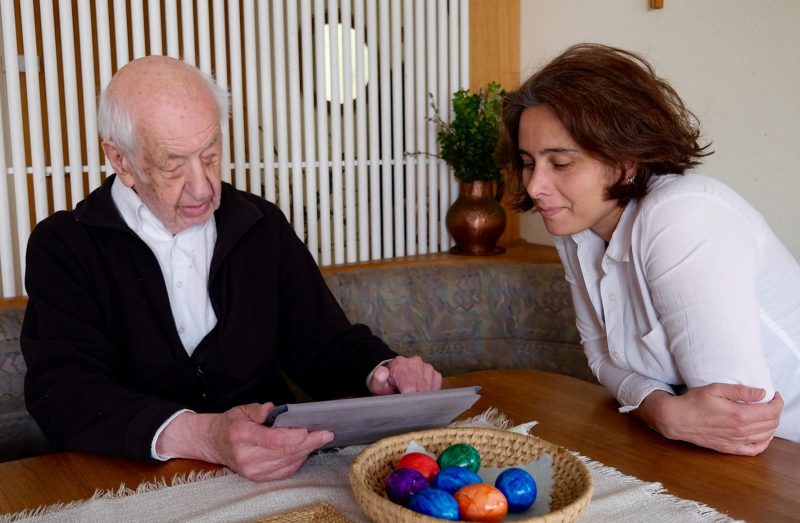
“‘A rolling stone gathers no moss”
In Turkey, we do not find the German culture particularly dear and we have reasons therefore. As I first met this culture one thing particularly astonished me; seeing my 80 year old parents-in-law sweeping the building, where they share apartments with the families of their children. It was their turn that time in what is called ‘Kehrwoche’ in Germany and their age did not seem to matter.
I, as a new family member from a elderly-friendly culture, wanted to help them. I found out then; in this culture taking over somebody’s work is considered as disrespect, since it may imply his/her inability. Besides, one is not supposed to insist helping.
I had not known my grandparents. On top, I had not seen many 80 years old persons walking on their own before. Then it is understandable, why I was uncomfortable watching old people cleaning. Naturally, I reacted again surprised, when I saw 80 year old people biking and doing exercises.
My take on the German culture
Beside what I observed with elderly people, there are many other contrasts between Turkish and German cultures: In Germany the visuality is quite important: One can see human figures in the churches and the prophet can be depicted. Germans are not lazy at all to get up and fetch an album, map or book in the middle of a conversation. As photography is used rather as document and to reinforce the spoken topics. Pretty much everybody has knowledge about the architecture and artistic/cultural monuments in their city, as they speak a lot about their history and culture.
I cannot say much about how deep their feelings are, but the fact is that; they do not show them much. Even if they tell about their memories of war, they are rather serious than being emotional. Furthermore, the neighbors and relatives are not as curious about each other’s private lives like in Turkey.
Germans talk quite open and frankly. They say their criticism or condemnations directly. However, they can start a sweet talking again, just after a hard conversation. Namely; being huffed or taking umbrage are not for Germans. Same as vanity and gossip.
Especially the elderly people enjoy sharing their experiences and life lessons. Yet, also friendship and openness have limits in the German culture. Some topics can be intimate and are not spoken out; like whom they vote for at elections, how much they earn or how religious they are.
Many Germans are rather local than national: They feel close to their dialect, which also reflects the state they live in. Each city has a local newspaper and the majority reads it through. They shop in small shops like butchers, bakeries or green groceries more than in supermarkets. Children go the school in their quarters.
Holidays like Ester and Christmas are not just vacation times for them. They take more days off and get prepared and celebrate the fest with the family. They have enough days for vacations in their jobs anyways.
A country that was completely down after the Second World War but established a booming industry and democracy afterwards, a country that was not independent but still did not produce terror while it was divided, and a nation that tore down the wall and announced unification without a bloodshed.
Indeed, the Germans are known as cold, disciplined and strict. However, this is probably the way to protect the order and the democracy in their country.
Does the society have something to do with long life?
The average life expectation in Germany is; 78 for men and 83 for women. In Germany there are currently 16.500 people over age 100 (Fokus) and they often have a healthy life. How come? Nutrition, sport, belief, habits have definitely some affect on it. And how about the social and cultural conditions I mentioned above?
I believe one can gain much insight from talking a person. My 95 year old Swabian father-in-law (we rather call him Opa, short for grandpa) is a forthcoming source for me to answer my questions about how to be a healthy elderly person.
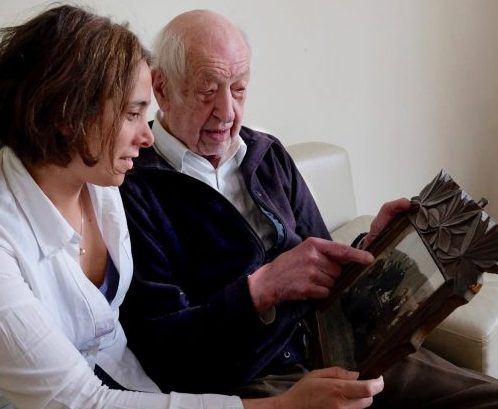
Interview: Sigmund Held
Can you first shortly tell about yourself, Opa?
Sigmund Held: I was born in 1921 in Neu-Ulm, exactly 50 meter from here. My grandpa had bought up this land in the beginning of 1860s. I am married for 58 years, have three kids and seven grandchildren between age 23 and 8. My father was a carpenter, mama was a housewife. The carpenter shop in the garden was inherited to my father from my grandpa and from my father to me. Well, the three generations were carpenters. I got retired in 1992.
Where were you at the war time?
Sigmund Held: In the fall 1940 I joined the 6 month obligatory military school. I first worked at railway construction, then at a military airport in Coen, France, where the air attacks to England were performed. After this soldier school I joined the army in January 1941.
What had you been doing during the war?
Sigmund Held: Fought against Russians, what else? I was actually in charge of communication but fought in the fields, as well. Carrying a radio device, I walked through Europe and North of Black See; Ukraine, Krimi, Caucasus, down to Elbrus. Then I walked back to Europe. The winter in Russia was extreme cold, like minus 41 grad. On my 20. birthday and next day I had walked almost 100 km. total.
In 1943 I came to Serbia by train, then Kosovo and Greece. At Greece-Albania border I joined a battle. Then around Christmas time I came to a military headquarter in Metz/France to get my officer-ship training. After 3-4 months training I became a officer.
20th of July, 1944 there was assassination attempt on Hitler by German officers. I had listened to that news on the radio. At that time I was fighting in Prussia and end of August I got shot by a Russian soldier.
I had been shot before but that time was serious. The bullet went through my left arm and barely missed my heart. I was not capable to use my finger, then they sent me to a military hospital in Ulm. Short before Christmas I was sent to Hungary, to the war again. The war ended on May 8 1945, I was around Vienna at that time.
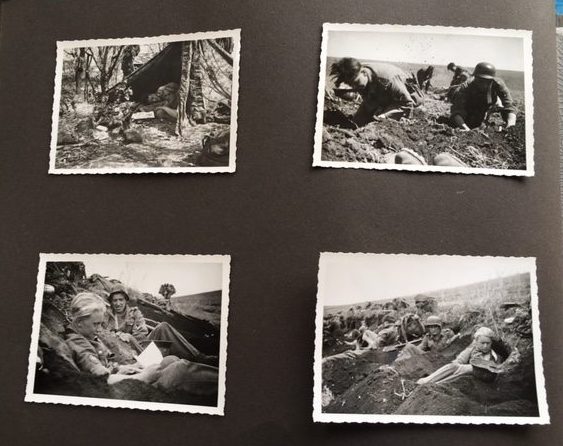
And then..
Sigmund Held: Then everybody was by himself. I started to walk back home with some others but we got caught by Russians. They put us in train wagons and transported first to Romania, then to Saparoji Camp, which is now in Ukraine. It was then December 1945. I stayed there almost 2,5 years. Then I was sent back home.
Many did not survived at those camps. How did you manage to go back home?
Sigmund Held: I was down to 45 kilos and not capable to work, then they sent me home. Afterwards Konrad Adaneur came to Moscow to talk about prisoners’ condition and the Russians started to set the other German prisoners free.
The war was over. Why did they capture prisoners?
Sigmund Held: It was simply so. To avoid new soldier attacks and to get some of their works done.
What did you do at Saporoji camp?
Sigmund Held: I hacked stones, worked in sunflower field and in the kitchen.
What kind of place was it? How had you been treated there?
Sigmund Held: No beating, no torture but lot of work and little food. As I was always skinny during the war, I did not give me heavy work there. We were allowed to write a post card to our families but only with 25 words.
Back to Neu Ulm
Anybody died in your family during the war? What did they do after the war was over?
Sigmund Held: During the bombardiers my family took shelter in the basement. Here, where we live now, was completely ruined after the war. Nobody died in my family but in the neighborhood. After the war my family had moved temporarily somewhere else, meanwhile constructed a new house and workshop on our land again.
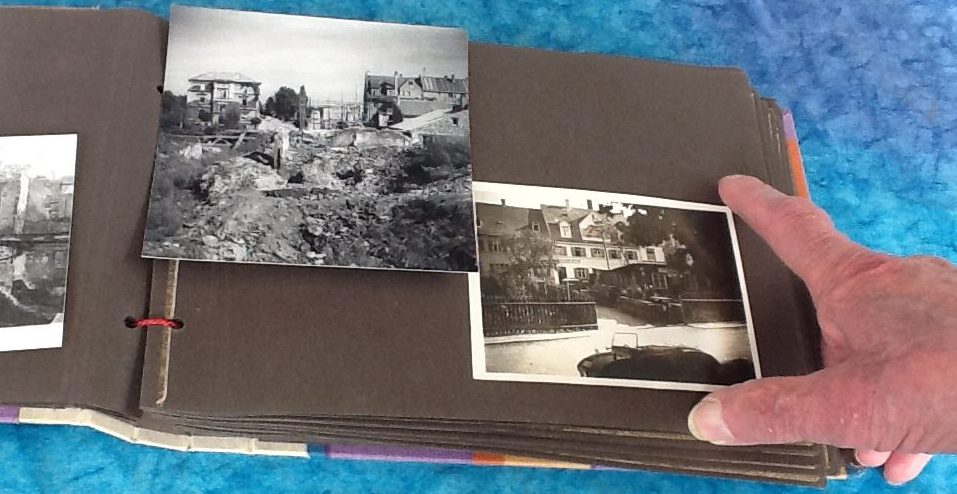
What did you do after you came back home?
Sigmund Held: I was then 27 years old. For a while I did nothing, then started to set up my life like the others did. I applied university and studied wood engineering, took an apprenticeship at my fathers carpenter shop and got my diploma as a carpenter master. I made wooden window frames until I got retired.
The German solidarity
After the war was over, the entire country worked together and built up everything from the beginning. All those tribes, which have different culture and languages, worked in solidarity. What was the motivation?
Sigmund Held: What else could we do? We had nothing, then we had to work to get things back, it was that simple. Why fighting or arguing? We, here, have Danube between us. In order to cross the river, we had to work together and built bridges.
What is more is that; after all what Hitler did, there was no national ideologies left in Germany. Everybody just concentrated on building a new country.
Is this where the German discipline comes from?
Sigmund Held: We had always been disciplined. Another reason for a good motivation can be our religiosity. Germans are quite royal to the church.
How was the state management at that time?
Sigmund Held: There was no German government after the war. Our state, Bayern, was in West Germany (BDR) and governed by Americans. The Russians governed the East Germany (DDR) until 1989. Americans helped a lot to establish our industry here. And Konrad Adaneur (1949-1963) as chancellor did a good work in politics.
The ones who experienced the war, started the life late.
How did you meet your wife?
Sigmund Held: Faith. We were neighbors already as youngsters. She was my sister’s friend. Long after we got together. But after the war we had to build things first. I took over my father’s shop in 1957 and we married in 1959. She was working at her family’s stationary. She is also Schwaben like me. We married late but we had three kids one after another. I became grandpa last time at age 87. Our generation, who experienced the war, started the life late.
Turks and Germans
What it is to be a German for you, after all what you experienced?
Sigmund Held: We would not say something like “We are proud of being German”. Why would we? I see myself rather a Schwaben. Swabisch is my culture and language. Being German is, then, our common value with other states in Germany.
What was your reaction, when your son told that he was going to marry a Turkish girl?
Sigmund Held: “Oh my God” I said first. Of course, it was his choice but we worried for his kids. They could have experienced problems in the society. We had heard some unpleasant stories before.
What do you think about Turkey-Germany relationship?
Sigmund Held: There are good and bad people in every country. I do not care what Turkish politicians do or say but I worry about German Government’s incompetence. What Merkel does is not understandable.
Democracy does not always mean that we are governed by capable people. Like the ones, who drives car without driving license , people without capacity manage the states.
The two cities: Ulm and Neu Ulm
Tell us now some about your hometown?
Sigmund Held: Ulm is an ancient city, Neu-Ulm is only 200 years old. Neu Ulm is in state Bayern, Ulm is in Baden Württemberg. There are 150.000 people in Ulm and 50.000 in Neu Ulm. The people are quite similar in these two cities. The two cities often mentioned together and they together form a middle size German city. The Danube separates the two cities and at the same time to states. I live by the river at Neu Ulm side, with a view to Ulm.
Anything particular or known here?
Sigmund Held: Earlier there was no traffic on land but on Danube. Ulm was one of the harbor city at Danube and therefore was a rich and a important city for Europe. The highest church tower is Ulmer Münster’s (After Sagrada Famiglia in Spain was finished, became second in the rank). Einstein was born in Ulm. Scholl family is also from Ulm.
Did you know Sofie Scholl?
Sigmund Held: Sure. We were born in same year in the same city and went to same school. I saw her couple times but we did not know each other. Her brother was in my parallel class.
The secrets of the long life
Anybody in your family lived that long like you?
Sigmund Held: No, my parents died at age 78-80. One of my sisters lived 90 years but she got ill and spent her last years in the hospital.
What do you eat, Opa?
Sigmund Held: I eat butter, marmalade and some salami at breakfast and drink mild coffee. 12 o’clock is our launch time, the most important meal: A light soup, meat or fish, side dish, vegetable and yogurt or fruit as dessert. Dinner is often cheese and salami. I sometimes try new recipes from health books, as well.
What concerns you the most about your nutrition?
Sigmund Held: Nutrition is important. Mediterranean cousin is healthy, sugar is dangerous. I always eat wholewheat or rye bread. I eat every day some nuts and piece of chocolate. I drink at lunch often red wine, evenings rather bier. After dinner a schnaps or uzo, before I go to bad some balm extract. And during the day 1,5 liter water.
We always buy our fresh food at small local shops, from the people we know for long time.
Isn’t it too much alcohol?
Sigmund Held: No not at all. I drink only reasonable amount. If you do not exaggerate, alcohol is healthy.
Daily life
How is your daily life?
Sigmund Held: I sleep often during the day, since I can not sleep through at night. I get up at 6 and take my pill and go to bed again. At seven our radio wakes us up and I listen to some music and news. Then I get slowly ready for the day. My older son, who lives upstairs, stops by before he goes to work and says “good morning” everyday. Then I set the table and the coffee machine, and have breakfast with my wife. Then make the bed and brush my teeth ect. I take a short nap while my wife prepares lunch. After lunch I clean the kitchen and sleep again. Afternoon I watch TV or read books.
My wife can not walk that good any more, so I do more households recently. In the last years we also get a cleaning help every other week. I sometimes go for shopping or hairdresser. I used to go for a walk or swimming often but I can not do these in the last 3-5 years.
Do you have a hobby?

Sigmund Held: I read a lot. Otherwise I do small things at my old carpenter shop. I used to do work much more in my shop until recently. I also used to drive car until age 90.
What do you read?
Sigmund Held: A lot about health and nutrition. The daily newspapers and a couple of periodicals. The German history and important people’s biographies.
Who, for example?
Sigmund Held: Pope Johannes Paul II’s life. The previous chancellors Adaneur and Bismarck’s. They were very smart politicians and did very important things for Germany. I also read Karl Marx’s biography but I do not like him, he had a dangerous ideology. I believe that the many bad things the World experiences today are rooted in Communism.
Religion
How important is the Church in your life?
Sigmund Held: The Catholic Church is very important for us. We were always religious, although it was not considered good at Hitler’s time. I believe the life after death. I go to church every Sunday and some weeks one more day. If we can not go, then we watch the mess on the TV. Easter and Christmas are very important for the family. We carry on all traditional practices.
The modern life
What do you think about today’s life?
Sigmund Held: The politicians were much clever and capable before. Democracy was more meaningful. Today’s politicians do not know much about politics and economy. They promise a lot without knowing how to finance all those things.
Earlier everything was much more valuable. Because one had to work hard to deserve or to buy things. Now people owe a lot of things with little work.
What do you thing about technology?
Sigmund Held: They do great things. I bought some small tools to make my life easier. Tablet pcs are very useful for me. Me and my wife, we both have our own tablets. We had bought cell phones but we do not use them at all.
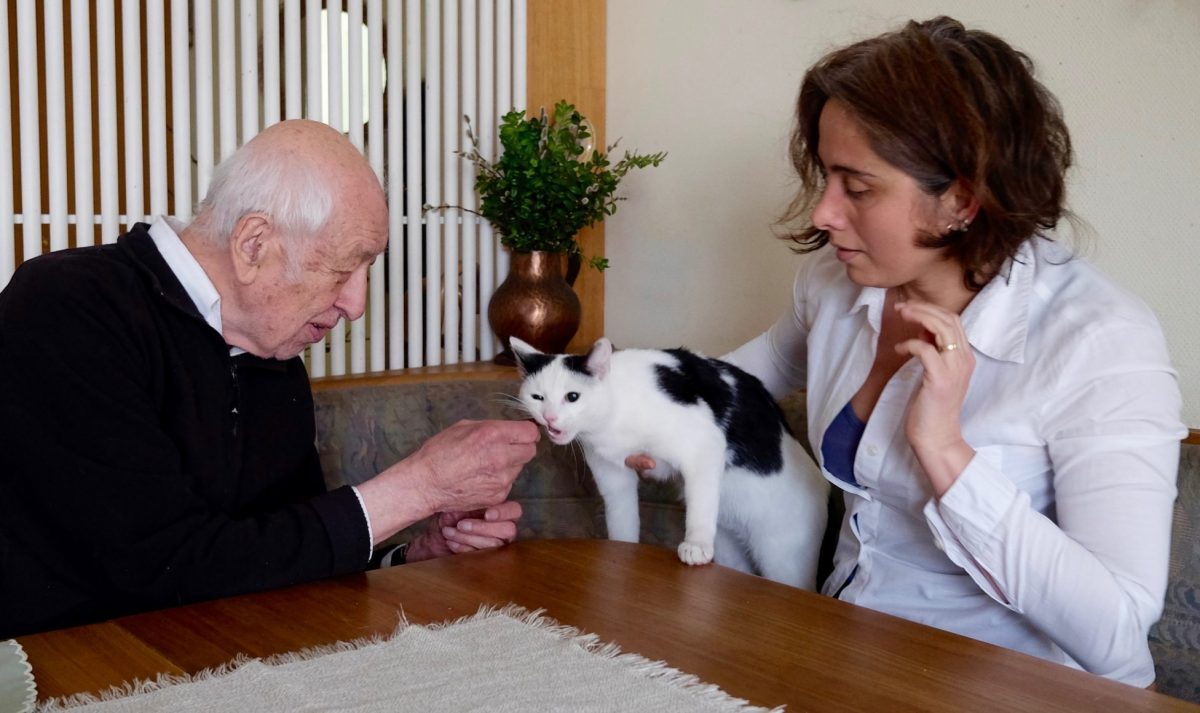
To be 95
In this 95 years, anything you have not done?
Sigmund Held: I never flow and have not taken a boat trip.
How is it to be 95? How do you feel?
Sigmund Held: The body does not function as before, off course. I have a peace maker since 5-6 years. I walk slower, read with a magnifying glass, take lots of pills everyday, can not hear without hearing tool, forget many things and I have to go to toilet often. Everything runs out, people around me gets less and less. I wish my health does not get worse before I die.
Your memory is still good, though.
Sigmund Held: Yes, I remember a lot from past but not from recent years. Earlier the feelings were more intensive and stronger, I guess. What is more is that, I had a young brain at those days, now it is also old like me.
How would you evaluate the life you lived so far?
Sigmund Held: I think I am lucky, since I have a good family. My parents created some trouble when we marry, tough. They had wanted me marry a rich girl. Otherwise everything was ok.
We are lucky having you, too. Thank you Opa.
I thank you. This was my the first and the last interview.



